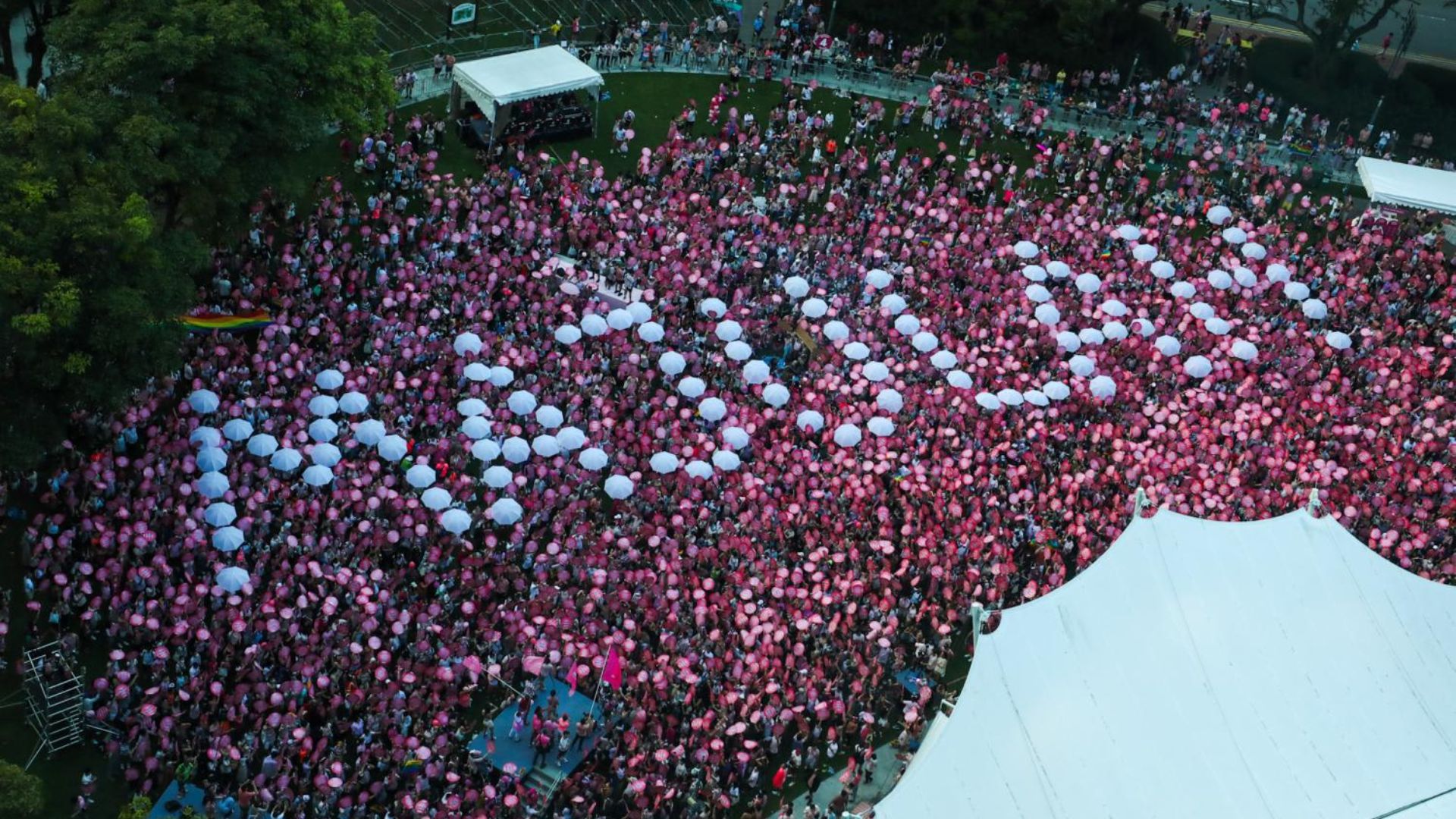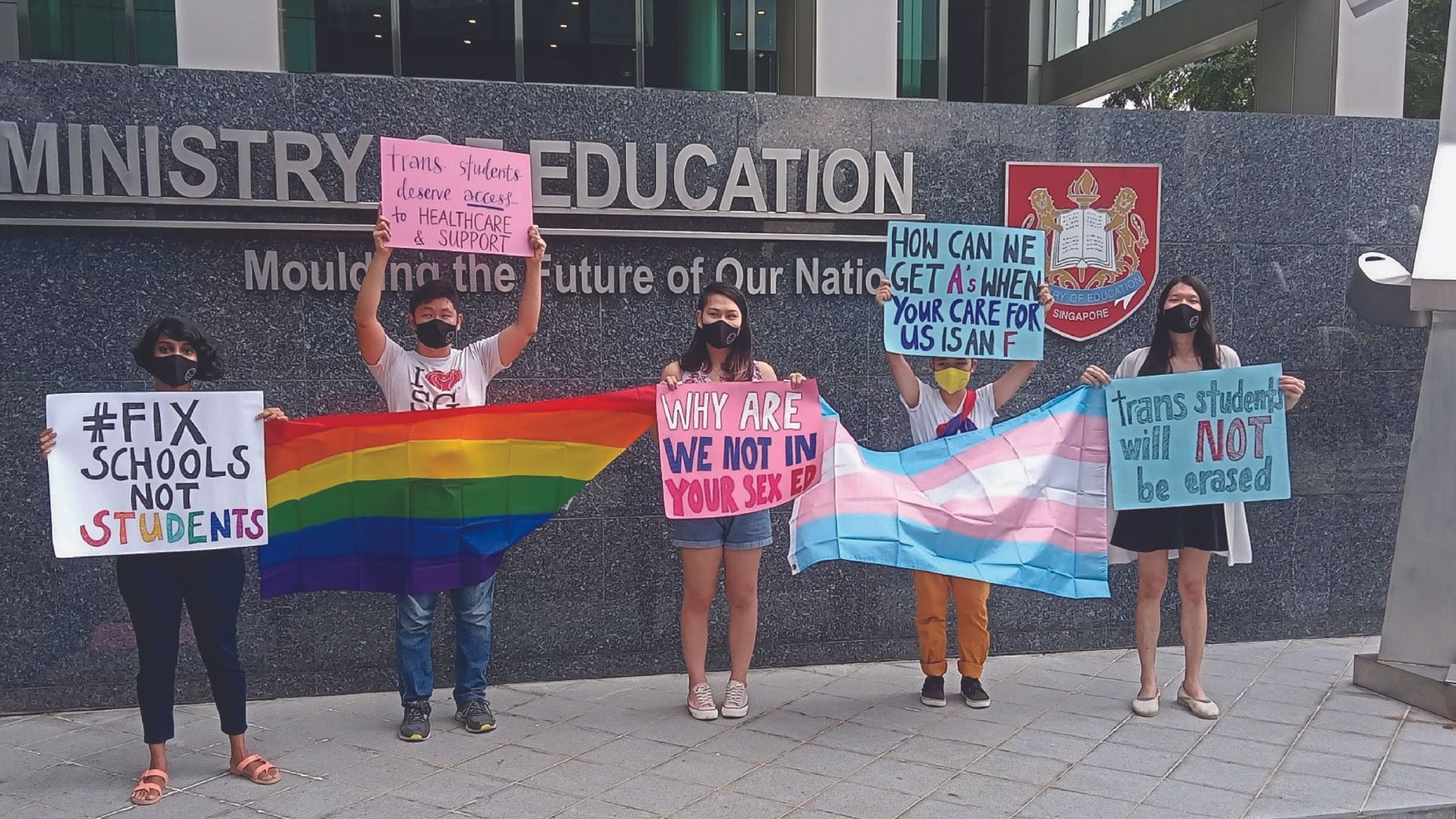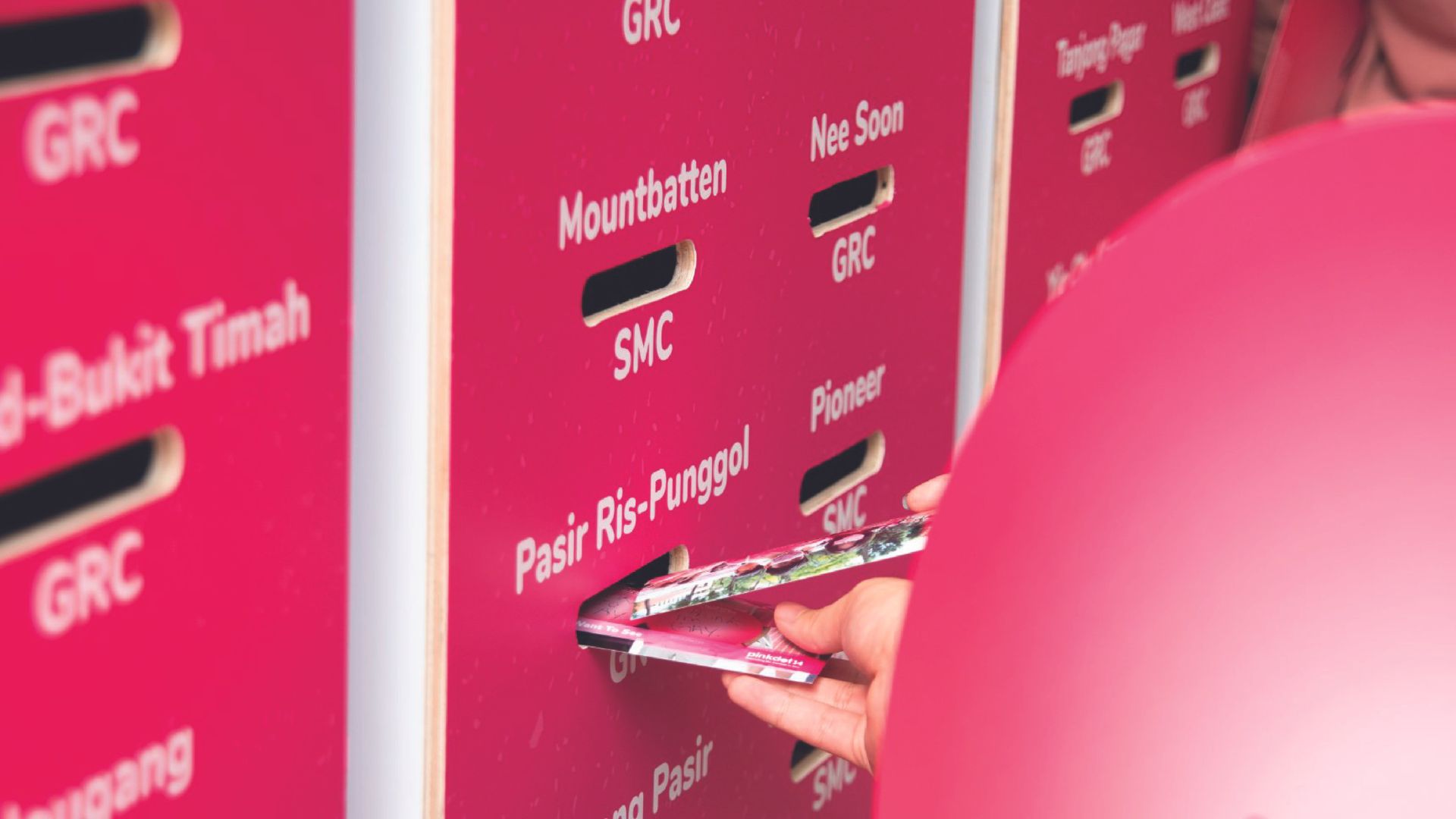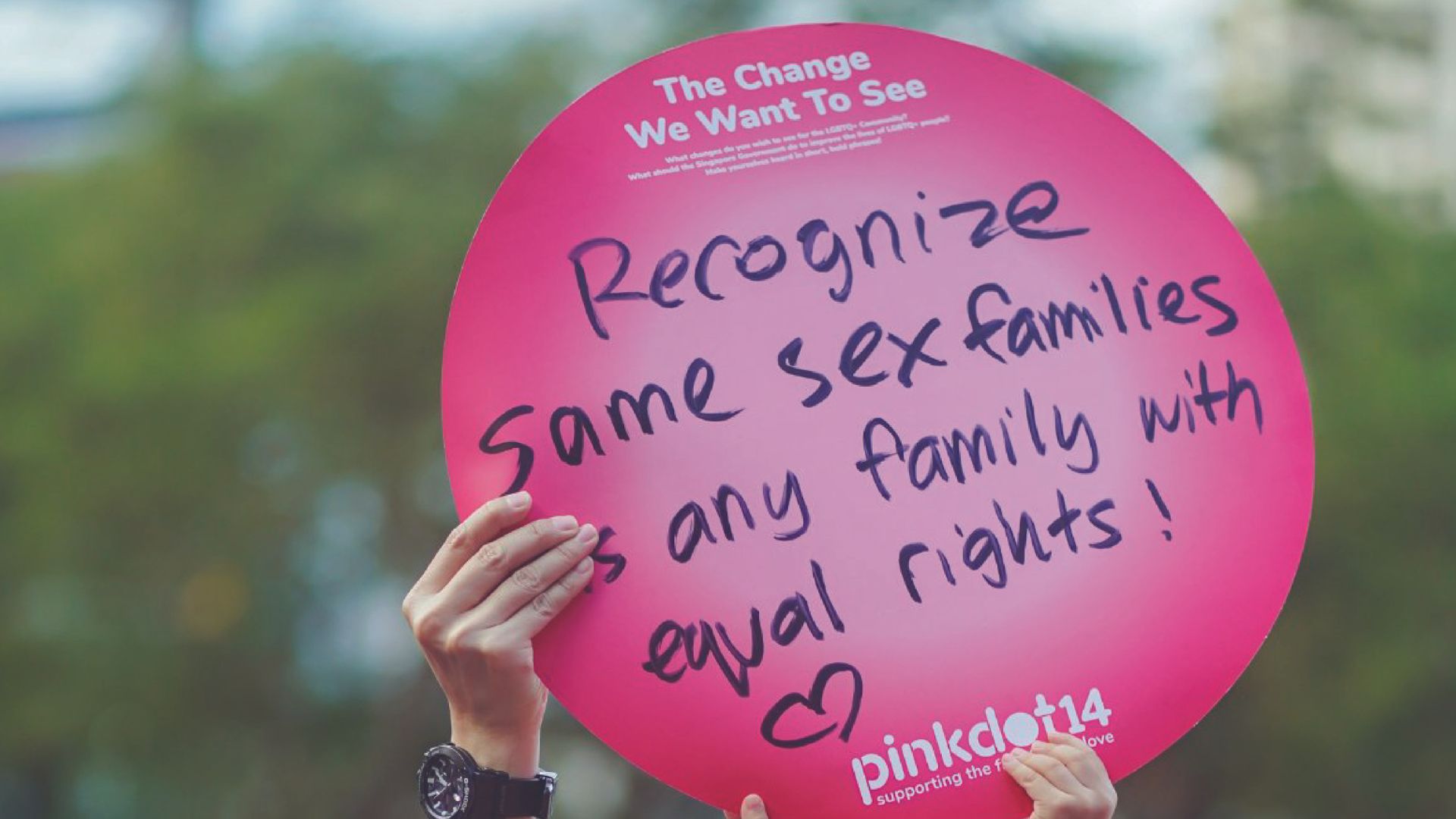Coming out can be a singularly frightening experience for those who do not conform to the cisgender, heteronormative (cishet) society, especially within socially conservative Singapore.
Mr Sean Foo, founder of leading LGBTQ+ publication Dear Straight People and creator of Singapore’s first Boys’ Love (BL) web drama series Getaway, says he was afraid of coming out to the people around him throughout his adolescence and early adulthood, especially his parents.
“After interviewing so many queer individuals, (I found that) my situation at home isn’t an uncommon one,” he penned in a blog post on Dear Straight People, where he shared his own story of coming to terms with his sexuality. “Asian parents tend to struggle with accepting their queer children… The majority of them grew up during a time where LGBT visibility was non-existent,” he wrote.
Mr Foo’s experience is not unique, in that countless LGBTQ+ Singaporeans feel the need to conceal their identity in order to avoid rejection by their families, friends, colleagues, and the wider community. Not only that, but Singapore’s government continues to uphold anti-LGBTQ+ laws and restrict positive queer representation in state-run media. This perpetuates institutionalised discrimination against the queer community, from which they lack protection by the Constitution.
“Those who openly oppose the heteronormative narrative are seen as irresponsible social delinquents, rebels, or criminals. They may face ostracism by family and friends, or even lose their jobs. There have been cases of people calling or writing to the employers of my LGBTQ+ friends and fellow activists to voice complaints about their sexual orientation, morality, or activism,” says Dr Roy Tan, a retired general practitioner and LGBTQ+ rights activist, who was the main organiser of Singapore’s first Pink Dot event in 2009. “However, these setbacks do not deter us as we are all fighting towards a goal much greater than our individual selves.”

The uphill battle for equality and inclusivity
Dr Tan, 64, has lived through Singapore’s LGBTQ+ history in its entirety – from the birth of Singapore’s first gay disco in an obscure seafood restaurant in the early 1970s, to the police entrapment and caning of gay cruisers in the early 1990s.
In 2008, Dr Tan attempted to hold Singapore’s first gay pride parade at Hong Lim Park, but due to a lack of support, the parade did not pan out as expected. However, it became the foundation on which Pink Dot was built.
In a 2016 interview with Dear Straight People, Dr Tan said that the LGBTQ+ movement was gaining momentum and that there were now more activists than at any other point in Singapore’s history. “Their numbers will relentlessly increase – Singaporeans’ level of education keeps rising and more people are willing to come out and be vocal about the unfairness we face.”
At the annual Singapore Summit in 2018, then Education Minister Mr Ong Ye Kung told participants that the LGBTQ+ community faces “no discrimination at work, housing, (and) education” in Singapore, which resulted in massive public backlash as many Singaporeans disputed that the statement could not have fallen further from the truth.
Singapore has seen a marked shift in the anti-LGBTQ+ rhetoric in recent years, but even as the country has grown to adopt more liberal views surrounding the issue — especially with the push of the younger generation — it still remains largely conservative. Discrimination is pervasive in nearly every facet of the day-to-day lives of queer individuals, for whom the system fails to grant the same quality of living as their cishet counterparts.
Unfortunately, on February 28, 2020, the Court of Appeal dismissed three Constitutional challenges to Section 377A of the Penal Code, a colonial-era sodomy law that criminalises sex between men. The challenges were issued by Dr Tan, disc jockey Mr Johnson Ong Ming, and Mr Bryan Choong, former executive director of LGBTQ+ non-profit organisation Oogachaga.
Chief Justice Sundaresh Menon said although the law remains on the books, Section 377A is now “unenforceable” — that is, unless the Attorney General makes the decision to start enforcing it. This casts a spectre of doubt and uncertainty upon its “unenforceability” in the future and implicates that queer men may still end up getting arrested for engaging in sexual relationships with their partners. In Pink Dot’s statement on the ruling, it urged Singapore’s leaders to “go beyond maintaining uneasy compromises and take affirmative steps towards equality”.
Despite this, Dr Tan remains hopeful and expresses that this is still “a significant victory for the gay community”. He says: “The ruling was the best the Court of Appeal could do, given the politico-legal constraints in Singapore, but it was adequate to set the ground for the eventual and inevitable repeal of Section 377A by Parliament.”
The Attorney-General’s Chambers stated that Section 377A sends “a certain moral signal” and supports a “legitimate and reasonable” state interest, which is to “(safeguard) public morality by showing societal moral disapproval of male homosexual acts”, as asserted by Justice See Kee Oon. However, even if Section 377A will not be actively enforced and stands for nothing more than a symbol of Singapore’s conservative society, the effects of its retention may be more far-reaching than policing sexual relations between men.

Anti-LGBTQ+ laws and regulations sets Singapore behind some other Asian countries
According to this article by Heckin’ Unicorn, leaving Section 377A intact allows the government to send the strong message that homosexuality — and LGBTQ+ identities by extension — remains legally immoral, from which it draws legitimacy to continue enforcing many other state-sanctioned policies that discriminate against the queer community. These policies relate to marriage, housing, education, healthcare, and more, effectively rendering them second-class citizens.
The article illustrates how Singapore does not legally recognise same-sex relationships in any form. Queer couples are officially registered as single individuals and, as such, encounter significant roadblocks in purchasing a home together and starting their own family. For example, Singapore’s public housing policy favours the “traditional family unit” and caters to heterosexual, married couples. When it comes to buying a Build-To-Order (BTO) flat, LGBTQ+ couples are mandated to wait until they both hit 35 years old to qualify — up to 10 years longer than their cishet peers — and are then only allowed to apply for the smallest flats.
With that, Singapore falls behind what Tokyo and Thailand have achieved.
It was in May that the metropolitan government of Tokyo announced it will be issuing certificates to endorse same-sex couples’ partnership status from November, which will allow them to apply for government and private-sector services, as stated in a draft of the plan released on the Tokyo government’s official website.
In June, Thailand’s Cabinet has approved the draft of Civil Partnership Bill, which, when passed, will legalise same-sex unions. Although the Bill will not go as far as endorsing same-sex marriage, it will enable gay couples to adopt children, jointly manage assets and liabilities and have inheritance and heritage rights between partners — which are not part of current laws.
When it comes to Singaporean couples who wish to adopt a child, they are subjected to the extensive changes made to Singapore’s adoption laws and practices. According to the new adoption rules established in May 2022, couples must be married under laws recognised by Singapore, and marriages that take place overseas must be legally recognised here.
Speaking in Parliament during the debate on the proposed changes to adoption rules, Minister for Social and Family Development Mr Masagos Zulkifli said: “This means that only a man and a woman married to each other can apply together. This is because Singapore’s marriage law only allows a man and woman to marry each other.”
For a marriage between a man and woman where surrogacy is their only option to have children, Mr Masagos said it “would be possible for them to adopt their child who is conceived through surrogacy, if the arrangement is carried out in a jurisdiction where surrogacy is not illegal”. This puts a spanner in the works for gay couples who wish to raise children together.
In 2019, then Minister for Social and Family Development Mr Desmond Lee told Parliament that the MSF was reviewing adoption laws, following a landmark case involving a gay father adopting his biological child, who was conceived through a surrogate mother in the United States.
Mr Lee stressed that the government does not support the formation of families by gay parents. Surrogacy is also banned in Singapore.
Furthermore, Singapore schools fail to provide safe spaces for young LGBTQ+ students, who are often distressed and deeply insecure about their sexuality. Schools invalidate the existence of queer identities by excluding them from the sexuality education curriculum, while the Ministry of Education (MOE) mandates that school counsellors report LGBTQ+ students to their parents and school authorities.
In 2021, a transgender student came forward to say that MOE had stopped her from getting hormonal therapy, which pushed the issue of LGBTQ+ discrimination in schools into the spotlight. In response, more than 300 teachers, counsellors, and social workers signed a petition demanding for MOE to administer “a clear policy to support transgender students”. The signatories also shared about having encountered similar situations with transgender students across local schools.
Prejudice also permeates the workplace, as there exists no established law that explicitly prohibits employment discrimination against the LGBTQ+ community. Lesbian women have approached Oogachaga with reports of being “bullied or harassed” by supervisors and colleagues for their physical appearance, and transgender men and women have their privacy violated with “inappropriate questions” about their sexual and relationship history during job interviews.
On top of that, state censorship of positive — or even neutral — media representation entrenches discrimination against the queer community. A 2017 study found that higher media exposure levels foster more accepting attitudes towards homosexuality, and a 2020 survey by GLAAD and P&G revealed that exposure to queer representation increased queer acceptance by almost 45 per cent. Accurate and compelling representation helps to raise the visibility of queer identities to the wider public, countering deep-seated stereotypes. On the other hand, Mediacorp’s harmful and homophobic portrayal of LGBTQ+ characters on television amplifies these stereotypes and paints the queer community in a negative light.

Activism and visibility
According to a survey conducted by the Institute of Policy Studies in 2019, the distinct shift towards the acceptance of gay rights is markedly stronger among younger individuals. The findings revealed that they were also much more likely to grow more liberal in their views over time as opposed to the older generation.
In 2013, only around 18 per cent of respondents aged 20 to 24 agreed that gay sex was not wrong. In 2018, over 40 per cent of the same cohort, now aged 25 to 28, held the same view. In contrast, greater resistance was observed among older respondents: In 2013, only 11 per cent of respondents aged 55 to 59 felt that gay marriage was not wrong. In 2018, about 15 per cent of the same cohort, now aged 60 to 64, felt the same way.
According to the researchers, the persistence of current trends could lead to wider acceptance of gay rights in the future, as society becomes increasingly divided on moral issues along age lines. They surmised that the prevalence of heightened support among youths might be due to growing activism in areas of human rights and gay rights. In addition, young people are more likely to be personally acquainted with someone who identifies as LGBTQ+ or have encountered positive media representation.

The LGBTQ+ movement thus far
“Pink Dot SG believes that progress for the community can only happen through constant dialogue with policymakers. A lot of the changes that we want to see require their action, whether it is through tweaks to existing policies or even reform through legislation,” says Mr Clement Tan, a spokesperson for the movement.
“In our engagements, Pink Dot SG has had to strike a delicate balance with being vocal — or even critical — on issues that are important to us, and being civil, respectful, and grounded in empathy. We try to focus on the common ground that we can build on together, and our overarching purpose of bettering the lives of LGBTQ+ Singaporeans.”
“Our policymakers themselves are still evolving in the way they engage civil society groups. In the past, these same policy makers didn’t even want to acknowledge the community explicitly, let alone be seen holding conversations with us. This is why the government’s latest efforts to engage us and understand our concerns are encouraging. With that said, we urge them to go beyond listening and to act quickly in addressing these issues, as many of them are long overdue.”
Dr Tan attests that the LGBTQ+ community is not entirely powerless and iterates the importance of making one’s vote count.
“Some LGBT allies such as Andrew Loh, one of the founders of The Online Citizen, have been in close contact with opposition MPs like Pritam Singh, who are partial towards the cause of LGBT equality. Queer women’s group Sayoni worked closely with Nominated MP Walter Theseira to raise LGBT issues in Parliament. Most PAP politicians are active on social media where they can read about the concerns of the LGBT community. In fact, Law Minister K Shanmugam has even visited LGBT-supportive counselling agency Oogachaga and The T Project, a shelter for homeless transgender Singaporeans,” he says.

Allyship as action
“You don’t have to be gay to fight homophobia.”
Mr Tan underscores that anyone can be an ally, no matter where they are or who they are.
“Allies can lend the platforms they have to amplify LGBTQ+ voices, challenge stereotypes and discrimination starting at home with family and friends, and teach their children the values of inclusion and equality,” he says. “They can donate to LGBTQ+ groups that provide lifesaving services and advocate for the community’s rights, or write to their political representatives.”
“When things seem bleak, we should remind ourselves of how far we have come and to hold on to hope. We should be proud of what we have built together: a beautiful and resilient movement that celebrates diversity, inclusion, social progress, justice, and equality.”
“Despite the many setbacks for the LGBTQ+ community, it is important not to lose hope. In Singapore, we are surrounded by the narrative that we should accept the things that we cannot change, but I believe that we should instead change what we cannot accept.”
RELATED: Coming out to mum and dad and what you wish they had said
Join the conversations on TheHomeGround Asia’s Facebook and Instagram, and get the latest updates via Telegram.














